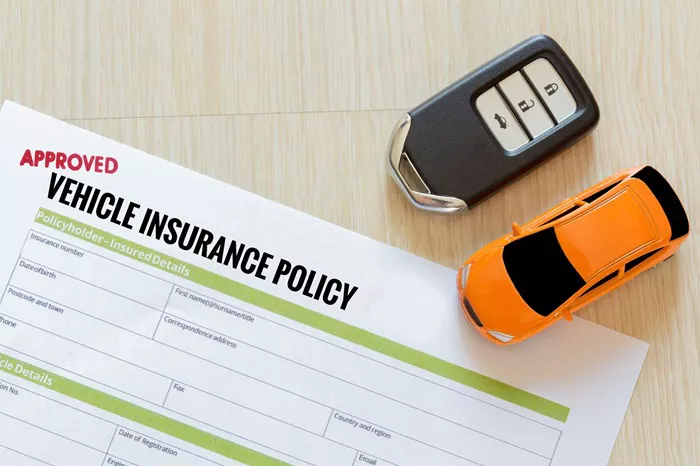Professional liability insurance is a must-have for many professionals. Whether you’re a doctor, lawyer, consultant, or any other service provider, this type of insurance protects you against legal claims that arise from your professional services. But what exactly does it cover, and just as importantly, what doesn’t it cover? In this article, we’ll break down the ins and outs of professional liability insurance, so you can make sure you’re fully protected.
What is Professional Liability Insurance?
Professional liability insurance (also known as errors and omissions insurance or E&O insurance) protects professionals from financial loss due to claims of negligence, errors, or omissions in the services they provide. Essentially, it helps cover legal fees and any settlements if a client sues you over the quality or outcome of your work.
What Does Professional Liability Insurance Cover and Not Cover?
Unlike general liability insurance, which covers bodily injury and property damage, professional liability insurance is focused on protecting against claims that arise from mistakes made during the course of professional services. This could include anything from a missed deadline to poor advice that leads to a client’s financial loss.
What Does Professional Liability Insurance Cover?
1. Negligence Claims
Negligence is one of the primary reasons professionals need liability insurance. If a client claims that you failed to perform your job duties properly or didn’t meet the expected standard of care, professional liability insurance can cover the costs associated with defending yourself in court and any damages you may be required to pay if you’re found liable.
For instance, if a financial advisor gives poor investment advice that results in a client losing money, and the client sues for negligence, the insurance would cover the legal defense costs and any potential settlement or judgment.
2. Errors and Omissions
Mistakes can happen, even to the most experienced professionals. Professional liability insurance is designed to cover the costs of mistakes (errors) or the failure to do something (omissions) that result in financial harm to a client.
For example, an architect might make an error in the design of a building that leads to structural problems. In this case, professional liability insurance would cover the costs of the client’s legal claim and any damages they may be entitled to as a result of the mistake.
3. Defamation and Libel
If a client or competitor claims that you made false statements about them, professional liability insurance can provide coverage. This includes defamation, slander, or libel claims arising from your work or public communications.
For example, if a consultant makes a false statement about a competitor’s business practices in a public forum, leading to a lawsuit for defamation, professional liability insurance could help cover the legal costs and any settlements.
4. Legal Costs and Defense Fees
One of the most important benefits of professional liability insurance is that it covers the cost of legal defense. Legal fees can be astronomical, and even if you’re ultimately found not to be at fault, defending yourself in court can drain your finances.
Professional liability insurance typically covers both the cost of hiring an attorney and the expenses involved in defending against a claim. This is especially crucial in industries where lawsuits are common, such as healthcare, finance, or law.
5. Settlements and Judgments
If you are found liable for a claim, professional liability insurance will typically cover the cost of a settlement or judgment. This includes any amounts awarded to the plaintiff in a lawsuit, which could potentially be very high, depending on the nature of the claim.
For instance, if an accountant makes an error in filing a tax return that leads to a client facing penalties, the client might sue for the costs associated with those penalties. Professional liability insurance could cover the settlement or judgment in this case, reducing the financial burden on the accountant.
6. Breach of Contract
In some cases, a professional might be sued for failing to meet the terms of a contract. If the breach of contract results in financial damage to the client, professional liability insurance can help cover the costs of the claim.
For example, if a web developer fails to meet a project deadline and the client suffers financial losses as a result, the client may pursue legal action. Professional liability insurance would help cover the costs of defending against the claim and any settlement or damages awarded.
What Doesn’t Professional Liability Insurance Cover?
While professional liability insurance offers broad protection, it does not cover everything. There are several key exclusions to be aware of when purchasing or reviewing your policy.
1. Intentional Acts or Fraud
Professional liability insurance will not cover claims arising from intentional wrongdoing, fraud, or criminal activities. If you deliberately deceive or defraud a client, your insurance policy will not protect you.
For example, if a financial advisor intentionally embezzles money from a client, any claims related to this fraud would not be covered by professional liability insurance.
2. Bodily Injury or Property Damage
Professional liability insurance does not cover bodily injury or property damage claims. These types of claims are typically covered under general liability insurance. If someone is injured at your office or your services cause physical harm to a person or property, general liability insurance would be the appropriate coverage.
For example, if a contractor’s equipment causes damage to a client’s property, that would be covered by general liability insurance, not professional liability insurance.
3. Personal Injury
Personal injury claims, such as those related to assault, battery, or false imprisonment, are typically excluded from professional liability insurance. These are covered by other types of insurance, such as general liability or workers’ compensation.
If a client or employee files a lawsuit for personal injury related to an altercation or wrongful imprisonment, professional liability insurance would not cover those costs.
4. Employment-Related Issues
Professional liability insurance does not cover employment-related claims, such as those for wrongful termination, discrimination, or harassment. These issues are generally covered by employment practices liability insurance (EPLI), which is a separate type of insurance designed specifically for workplace disputes.
For example, if an employee sues for wrongful termination or harassment, professional liability insurance will not provide coverage. EPLI would be needed in this case.
5. Property Damage from a Product or Service
If your professional service results in damage to a client’s property, the insurance will not cover it unless the service itself is inherently related to property damage. This is generally more relevant in industries like construction, manufacturing, or product development, where product liability insurance would be needed.
For example, if a consultant’s advice leads to a product failure, causing damage to a client’s property, professional liability insurance would not cover the property damage. Instead, product liability insurance would be required.
6. Pre-existing Damages or Claims
Professional liability insurance typically won’t cover claims or damages that existed before the policy was purchased or the event occurred. This means that if you had knowledge of a potential issue before obtaining the policy, the insurance company may deny your claim.
For example, if you were aware of an error in your work but didn’t report it to your client until after purchasing the insurance, the insurer might not cover the claim.
7. Claims Made Before the Policy Period
Professional liability insurance usually operates on a “claims-made” basis, meaning the insurance only covers claims made during the period of the policy. If a claim is made after the policy expires, even if the event occurred during the policy period, it may not be covered.
For example, if a client sues for an issue that arose while your policy was active, but the claim is filed after your policy expires, the insurer may not cover the costs.
Why is Professional Liability Insurance Important?
Professional liability insurance is essential because it protects your career and your financial well-being. The cost of defending a lawsuit and settling claims can be incredibly expensive, especially for small businesses and independent contractors. Without this coverage, a lawsuit could jeopardize your livelihood.
Many clients also require professionals to carry liability insurance, especially in industries like healthcare, law, and consulting. It shows that you are serious about your work and are prepared for the unexpected.
Conclusion
Professional liability insurance is designed to protect you from the financial fallout of mistakes, negligence, and omissions that occur in your professional services. While it covers a wide range of claims, it also has its limitations, so it’s important to understand exactly what is and isn’t covered by your policy.
By ensuring you have the right coverage, you can protect yourself from the potentially devastating consequences of a legal claim. Whether you’re a doctor, lawyer, architect, or consultant, professional liability insurance is an essential part of managing your professional risks.
Related topic:
Why Did States Provide Workers Compensation




















